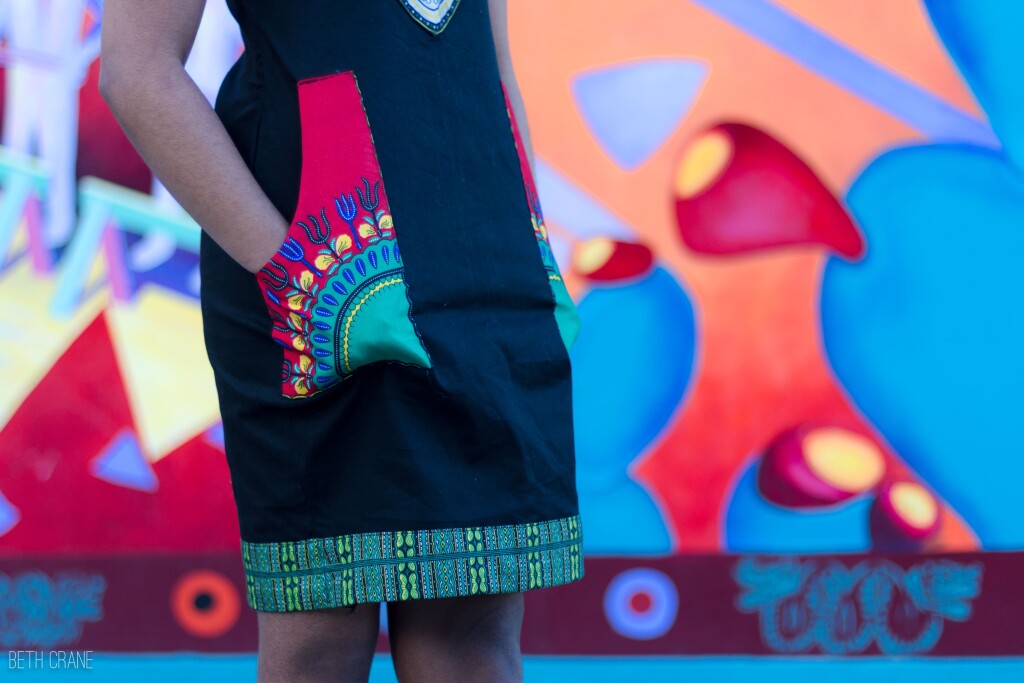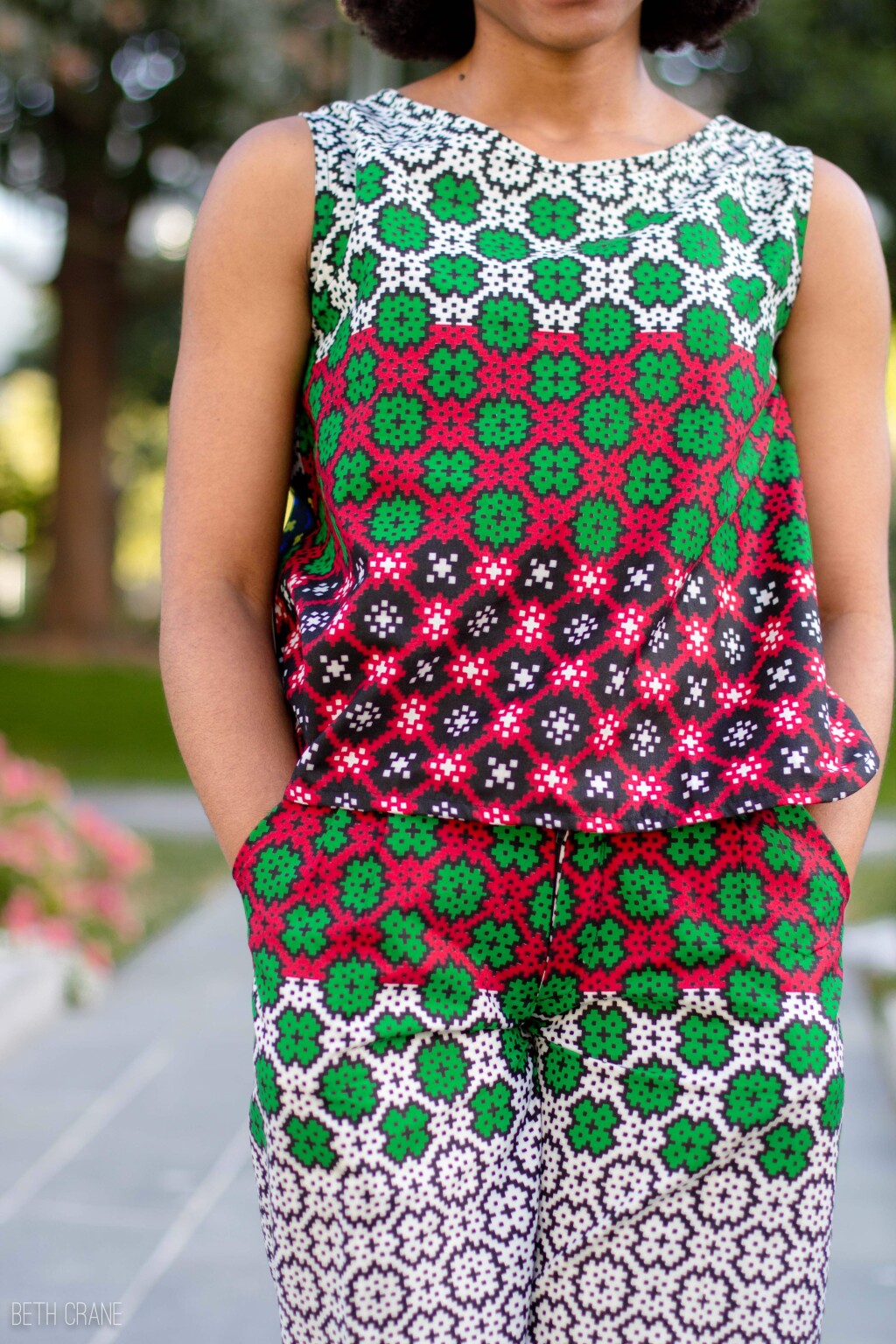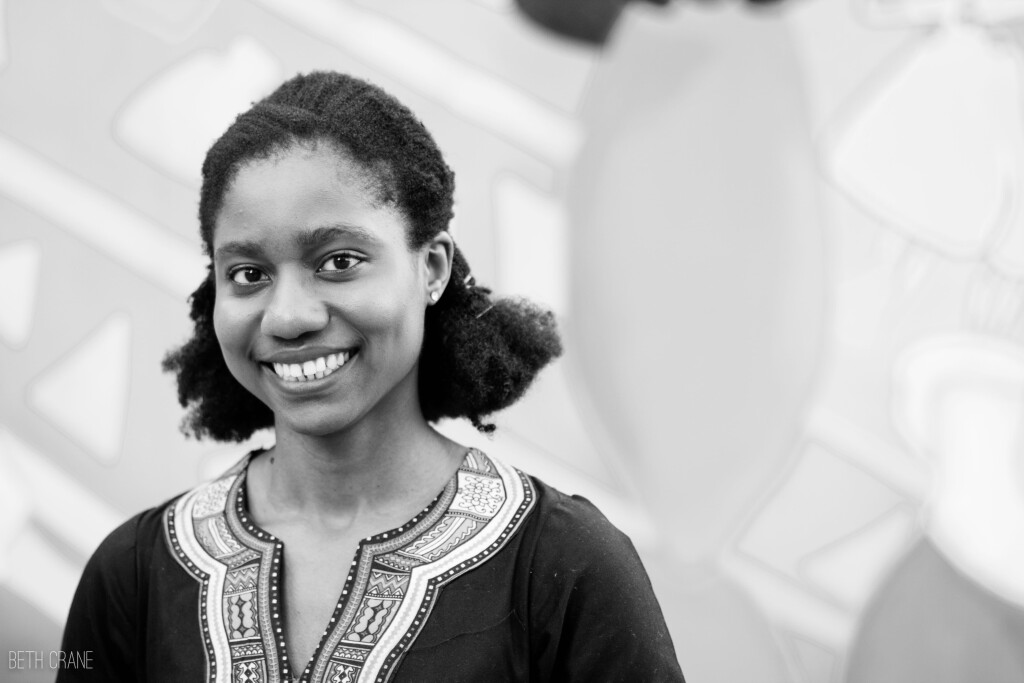Tell us a little about you.
I am a software engineer at Pandora Media. I graduated in 2017 with my master’s in computer science before joining Pandora full time. I am originally from Nigeria.
As a child I loved writing, so I grew up thinking I would study something related to writing - and I did! I studied journalism for my undergrad - however, during my junior year of college I took my first programming class.
I had never been exposed to programming prior to this and I found it very enjoyable. Afterward, I started taking programming classes on the side before officially enrolling in a master’s program at DePaul University. The program had a one-year introductory classes that allowed me to get up to speed with Data Structures and Algorithms and a two year masters program on more advanced computer science topics.
Tell us about what you’re wearing.

In both instances, I am wearing Nigerian attires. They were designed by an amazing Nigeria designer back home. The shirt and pants features a modern style of African clothing. It is meant to be comfortable and stylish. The dress has dashiki-styled prints, originates from West Africa. The word dashiki means “shirt” in Hausa, and the style was commonly used for shirts but has now evolved as a popular print for many types of outfits.
How did your style evolve to what it is now?

My style has evolved over time from wearing more conventional clothing to work, to trying out more African attire. I find Nigerian clothing extremely comfortable and perfect for the work setting. I hope to inspire more young people to try out wearing African attire, especially the more modern styles, to work.
Any advice for a young person thinking about getting into a STEM field?

**
The art of creation is something that I believe is innate. STEM is all about creation and anyone can be a part of creation. I would encourage anyone thinking of getting into a STEM field to build. Start building anything, whether it is an app or a small architectural prototype. Go online and find a quick tutorial on how to build a small prototype of what engineers in the STEM field you are looking into would build. This will give you an idea of what it is like to be an engineer in that field. Don’t let tough classes dissuade you from a major, as that is often just one subset of what the job in real life will look like. Focus on the areas you enjoy and as always, focus on building.
What would you say is the project you’ve done that you’re proudest of?

I am most proud of a project I worked on involving Internet Of Things where users could get an alert on their phone when a water leak or fire outbreak was detected. I built the prototype using sensors and IOT microprocessors including Arduino and Raspberry Pi. Working with these tools was pretty affordable, and it made me realize that the art of creation is really at ones finger tips, particularly with the increasing affordability and accessibility of microprocessors and mini computers.
Are there any misconceptions about STEM fields that you’d like to clear up?

Often times, people have a misconception about tech that you need to have a heavy background in math. While this may be true in some subsets of software engineering/computer science, not everything in software engineering requires a heavy math background. If you have a strong logical skills, computer science could very well be a good place for you. There are other soft skills in computer science that many people often overlook, and unfortunately, often disqualify themselves from being able to pursue fields in the tech industry.
I met Uchenna at a talk she gave for Black Valley in San Francisco last summer. It was a privilege to talk about Mixed Reality to such an engaged audience, and chatting/answering questions afterwards was a joy. I was lucky Uchenna could do a shoot with me on such short notice - we hope you enjoyed this interview!
